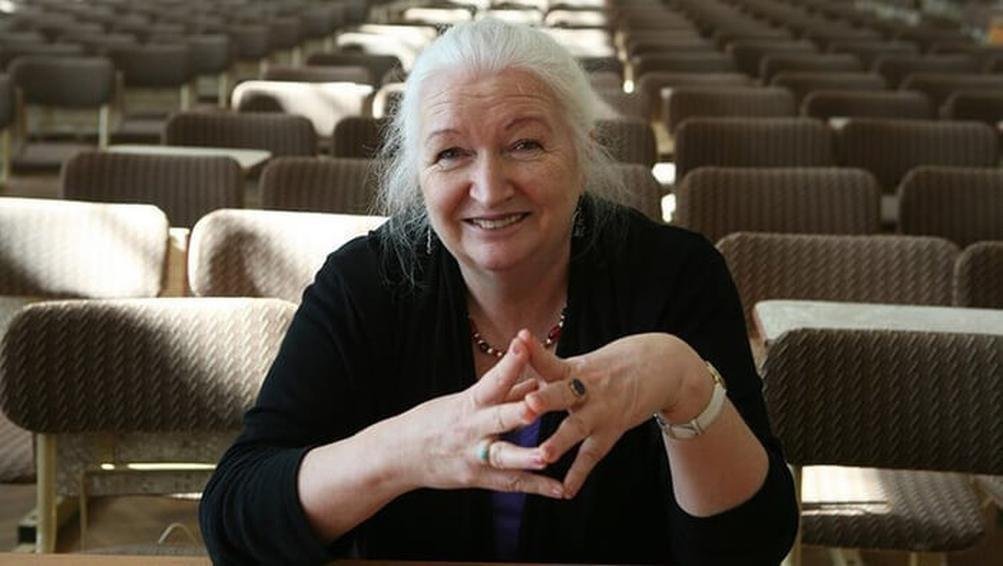Professor of Modern Understanding of the Brain and Consciousness
Tatiana Chernigovskaya is a remarkable scientist, a representative of the Russian cognitive science. She is a professor, doctor of philological and biological sciences, and, which is very important, an active popularizer of science. Tatyana Vladimirovna is one of the few in Russia who currently works in the interdisciplinary field of cognitive science.
Her interests include linguistics, psychology, artificial intelligence (AI) and neuroscience. And this is not all of her positions and professional achievements. Today we’ll talk about how this talented woman looks at the problems of the brain, consciousness and artificial intelligence.

Take our test: TEST-Time! Find out which hemisphere of the brain is dominant in you
The brain: the organ that makes decisions for us
What do you think is more complicated – the brain or the Universe? Perhaps Tatyana Vladimirovna’s answer will surprise you. In her speeches, she often emphasizes that “The brain is the most complex thing in the universe“. The human brain is an amazing organ that hides many mysteries, which we naively consider ours. Tatiana ironically notes:
“The fact that the brain ended up in our cranium does not give us the right to call it“ mine ”. He’s incomparably more powerful than you. “Are you saying that the brain and I are different?” – you ask. The answer is yes. We have no power over the brain, it makes the decision itself. “
Research shows a very interesting thing. Imagine you got up and went to pour yourself some hot tea. Who do you think made this decision? Are you yourself or your brain? Experiments have shown that the brain makes a decision before you know it. Let’s go back to the above example. The Encephalogram shows that a few seconds before you decide to make tea for yourself, your brain has already made this decision.

Read also: Why quality sleep is important: 8 things that happen in your body and brain when you sleep
Interestingly, the brain is not only self-sufficient in making simple decisions, but also cunning. He resorts to a trick: it makes a person think that it was he who made the decision to close the window, drink tea, dust off the shelf.
In addition, the brain is not just a neural network, or rather, it is a network of networks, says the doctor. The brain contains about 5 petabytes of information. For comparison, this is 3 centuries of continuous video viewing! Can you imagine how huge this amount of information is? I honestly can’t. And if you are still not under the impression, then Chernigovskaya can give other astounding impression data known to science.
For example, if you theoretically draw out a neural network in a line, then it will be equal to 7 flights to the Moon. And also in the brain there are approximately 100 billion neurons, and each of them can have more than 10,000 connections with other neurons.
“Bad” and “good” brain
Chernigovskaya in her lectures often uses the concepts of “bad” brain and “good” brain. A “good” brain from a “bad” one is distinguished by the complexity of the neural network. A neural network is a combination of what a person was born with and what he deals with, his life experience. Thus, not only heredity is important, but also everything that shapes us as individuals: the books we read, the music we listen to, the people we communicate with, and much more. The Ph.D. explains:
“The brain is not a sieve, nothing spills out of it. Everything we see and hear stays in our brain, so it is extremely important to surround ourselves with good people, listen to the right music and read books that make us better. “
Brain and artificial intelligence

There is a lot of talk today about Artificial Intelligence. People worry that it will be able to duplicate our brain. Tatyana Vladimirovna reassures: itth will never happen. In order to make AI identical to our brain, we must teach it factors that are inaccessible to AI. Of course, it’s not about speed: “The processing speed in a computer is a million times faster than in the brain“.
The difference is that what we do always depends on the context. We have the possibility of multiple interpretations of the same events. This alone is enough to realize that even the best databases cannot do this. The computer always has the address of the object, but the brain does not.
A person is different in that he uses different algorithms at different times for no obvious reason. For example, why today we decided to go to the bus stop through the park, and tomorrow – through the courtyards, and the day after tomorrow – did we go to work on foot? Sometimes there are reasons for this, but often we do not know why this is happening. Chernigovskaya refers to the witty words of an AI specialist Pospelova, who cited culinary recipes as an example: “cook a little, salt to taste …”. What kind of algorithm is so incomprehensible? For a person it is easy, but for a machine it can cause a malfunction.
Man’s consciousness is like the wind
Tatyana Vladimirovna likes the comparison of consciousness with the wind. Indeed, we cannot see the wind itself, but we can see the results of its activity. And the same thing happens with consciousness.
She is very careful about the topic of consciousness:
“We have accumulated so much information, but we do not know the most important thing. Namely, there is no agreement on what we will call consciousness. Buddhism, for example, believes that consciousness arose together with the Universe and has the same fundamental role in the picture of the world as atoms, photons and other elements. “
Interesting and indicative here is the case that occurred in the 1980s at the RAS at the Council dedicated to the problems of consciousness. At one of the meetings, the organizer asked to bring a note the next day with the text “Consciousness is …”. All that was required was a definition. How many notes do you think he received? None. Because consciousness today defies definition.

There are many theories. We can understand by consciousness that which is opposite to its absence. What happens, for example, with anesthesia. Or it is no coincidence that they say: “lost consciousness.” Can prove that consciousness is the opposite of the unconscious. We can argue that this is the ability to reflect or understand. Nevertheless, the problem of determining consciousness burns red in science.
Difficulties also arise when the concept of “consciousness” is translated from Russian into English. Most often it is translated as “mind”, which is translated back as “brain”. Confusion begins in the definitions. Nevertheless, despite all the difficulties facing science, the study of language, brain and consciousness is very important. Because each person cognizes the world, passing it through his consciousness, and then tries to share this experience through speech.
What to give a friend?
Gift Certificate! You can give it to your loved one or use it yourself.
And we also give away a certificate for 3000 rubles every month. among new email subscribers. Subscribe!
Select a certificate in the store
Visit Bologny for more useful and informative articles!





